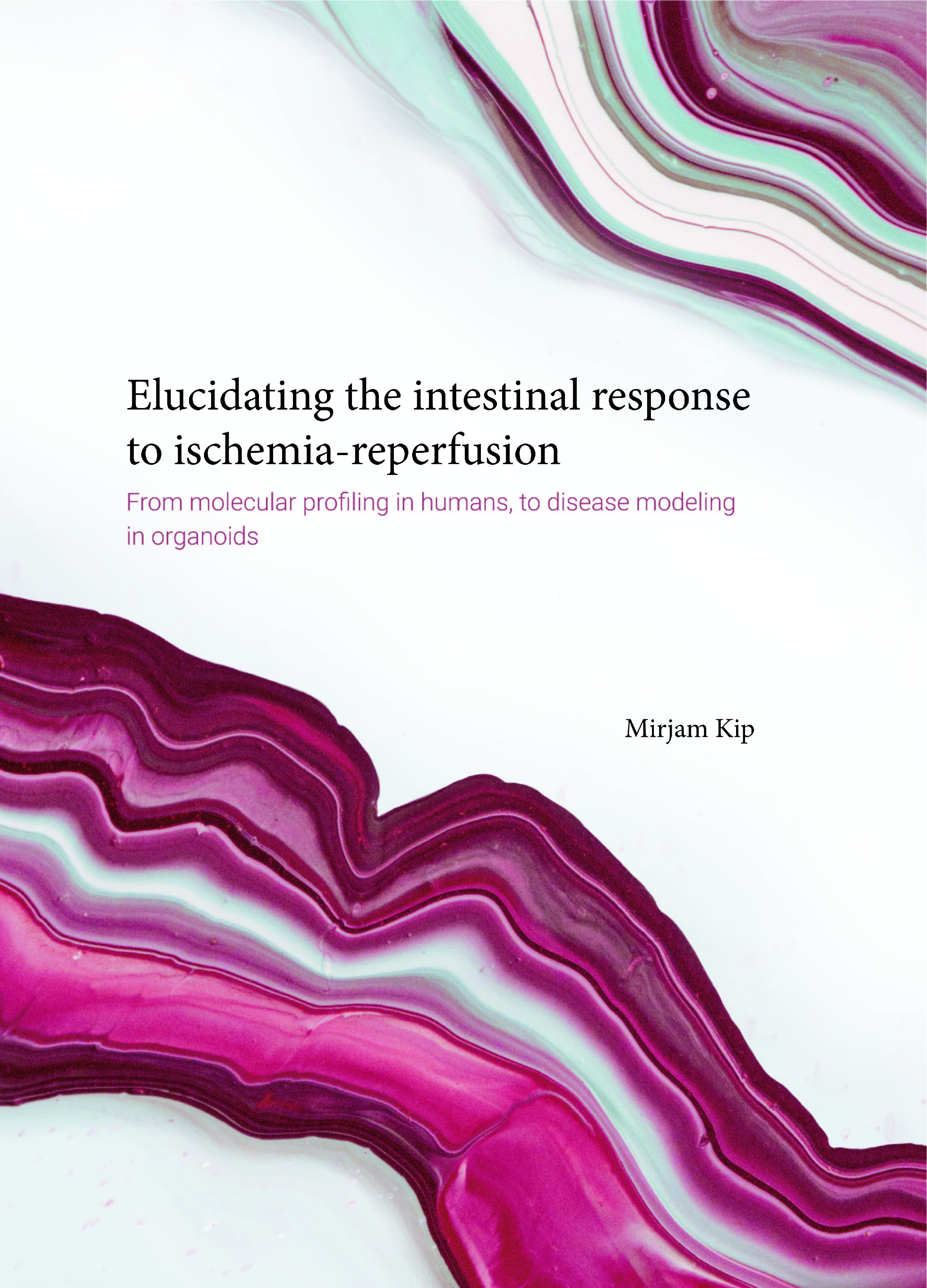On-Site PhD conferral Anna M. Kip
Supervisor: Prof. dr. S.W.M. Olde Damink
Co-supervisor: Dr. K. Lenaerts
Keywords: Intestinal infarction, ischemia-reperfusion injury, intestinal organoids
"Elucidating the intestinal response to ischemia-reperfusion; From molecular profiling in humans, to disease modeling in organoids"
In intestinal infarction, a blood vessel of the intestine suddenly becomes occluded, for example by a blood clot. This leads to a shortage of oxygen and nutrients in the intestine, also known as intestinal ischemia. This results in severe intestinal damage and inflammation, which worsens temporarily after blood flow is restored (reperfusion). Intestinal infarction is a life-threatening condition, partly due to the lack of effective treatment.
In this thesis, the underlying molecular processes that are initiated during ischemia and reperfusion of the human intestine were carefully mapped. This showed that certain signaling pathways are highly regulated, providing new leads for targeted treatment strategies. To investigate these further, intestinal organoids, also 'mini guts' in a culture dish, were used. In these 'mini-guts', an intestinal infarction was mimicked by temporarily exposing them to an oxygen-deficient environment. In this new model, the effect of a targeted treatment was investigated.
